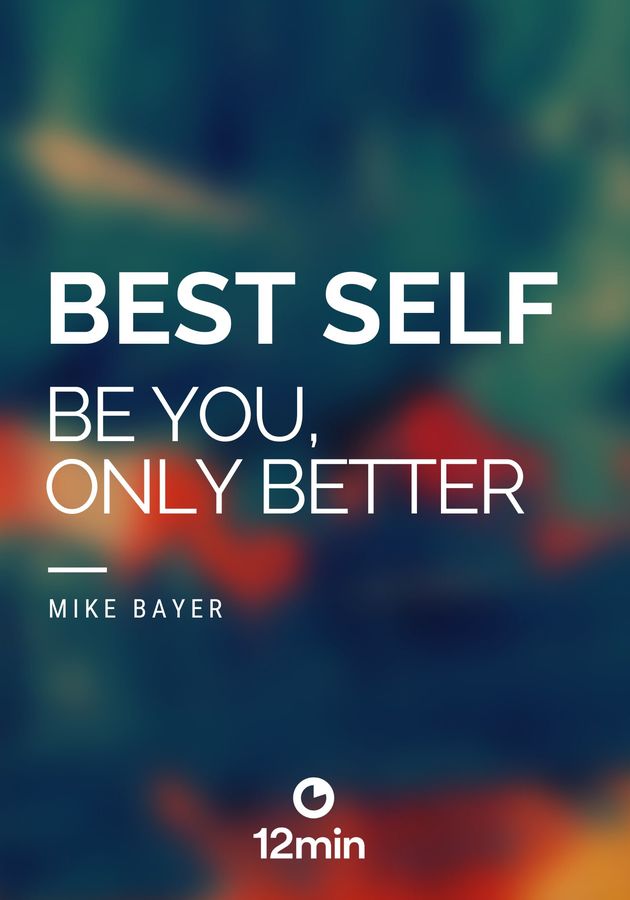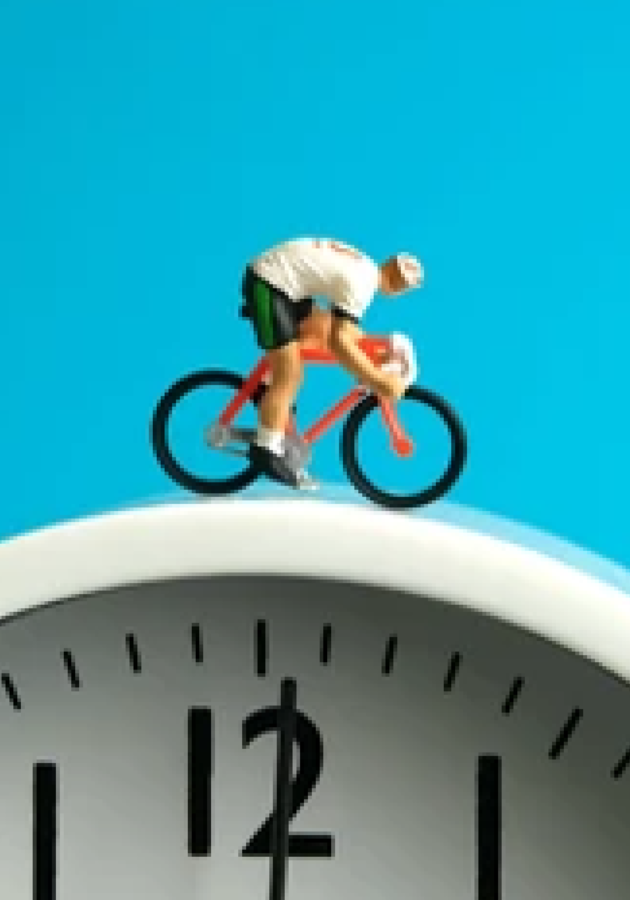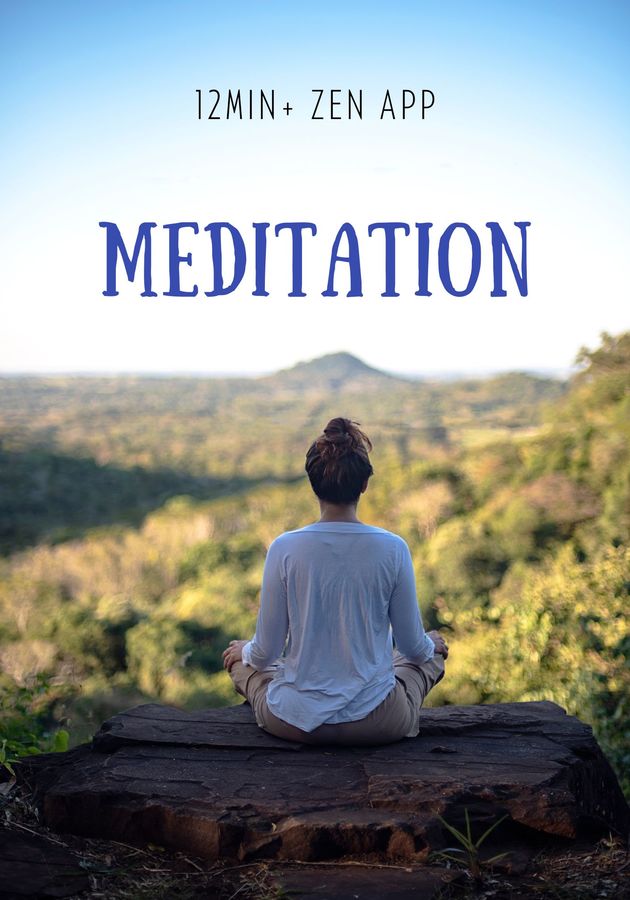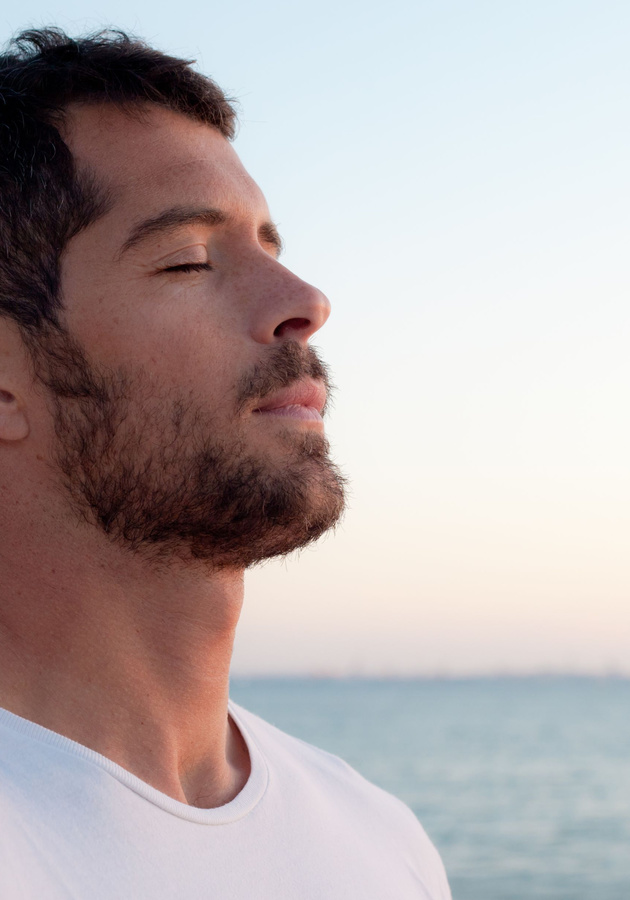“Gentle giant” Mike Bayer, better known as Coach Mike, spent the early years of his career as a drug and alcohol counselor and board registered interventionist. This experience helped him grow as a human being and taught him how to persevere through tough situations. It also allowed him to better understand what people suffer from, as well as to develop the skills, confidence and opportunity to do something about it. Throughout the years, Coach Mike has quietly become “one of the biggest names in mental health” in the United States, a process which culminated in 2020 when he was hired to become a member of Dr. Phil McGraw’s core team and a regular on his show. “Best Self” is Coach Mike’s first book. In his own description, it is Best Self: Be You, “a how-to action-oriented guide to becoming your own Life Coach!” Well, get ready to achieve just that!
Discover your Best Self and understand your Anti-Self
Let us kick things off with a truism: you are a unique human being. Indeed, you are: nobody in history has ever lived a life identical to yours, and nobody ever will. Hence, nobody you know or wish to have known could truly understand what it means to walk in your shoes. There has never been, and – unless they perfect cloning – there will never be another you. True, it’s quite probable that none of your thoughts is original and it’s very likely that none of your experiences is exceptional, but their sum is, most definitely, unreplicable. Think of that for a second. Isn’t it miraculous? Isn’t it, undeniably, mind-blowing?
Of course it is. And yet, most people – including you, perhaps – live inauthentic lives. Meaning, rather than embracing their uniqueness and freedom, they seek distraction and escape in social conformity, that is to say, in emulating other people’s words and deeds. As a result, they end up with more than one “self,” none of which is the true one. In many ways, that’s the root-cause of anxiety, sadness, and depression. Living an inauthentic life is pretty much like playing a video game with the wrong joystick – no matter how hard and frequently you press the right buttons, your character will never make the right moves. Because, well, it’s not your character.
Be that as it may, out of the thousands of quite tangible selves we inhabit daily, the most important two are actually abstractions. The first one is your Best Self, that is to say “the person you want to become.” The second one is your “Anti-Self”, namely the person who’s holding you back. To find your authentic voice, you must first define the attributes of these two selves. To do so, identify your best and your worst traits and attach them to the two characters accordingly. Next, amalgamate the appropriate traits to create two personas, in much the same manner as you would characters in a video game. Now, draw your Best Self and your Anti-Self to the best of your ability. Remember them. They will be your anchor points from now on.
Your unique journey: the five tenets of change
Think of your Best Self as your proverbial shoulder angel, and appropriately of your Anti-Self as your shoulder devil. Can you recall three incidents from your past when your Anti-Self had complete control over you? Wouldn’t you say that it made you act as if possessed by some kind of an evil force? If you could go back, would you have done some things differently? Well, how would your Best Self have acted in those very situations? Comparing and contrasting your reactions in this way should prepare you mentally for change. Even though the process itself would be unique for you (because, well, you are a unique person), there are some fundamental tools that are common to everybody, not to mention essential to a successful experience with Coach Mike’s Best Self Model. Here they are:
- Curiosity. Walt Disney once said, “We keep moving forward, opening new doors, and doing new things, because we’re curious and curiosity keeps leading us down new paths.” Indeed, it does. Curiosity – or rather, “the strong desire to know or learn something” – is the first step to self-knowledge and change. Be inquisitive. Start looking for connections between your thoughts and behaviors. Only then should you be able to “see yourself for who you are right now so that you can understand where you want to go.”
- Honesty. As Nobel Prize-winning physicist Richard Feynman once said, “The first principle is that you must not fool yourself – and you are the easiest person to fool.” Honesty is an imperative. If you’re lying to yourself about anything, you’re only “putting up roadblocks to your own progress.” You will never get where you want to be lest you truly discover where you currently are.
- Openness. There’s a big difference between honesty and openness: whereas the former is turned inward, the latter is turned outward. The two are not even really related. Even honest and educated people can be naturally close-minded, because, well, our brains are tools for survival, not for understanding. However, if you want to experience the beauty of your Best Self, you must learn to be open to everything put in your pathway.
- Willingness. Before he became a renowned alcohol counselor, Coach Mike was an alcoholic himself. So, he knows intimately two things: 1) that change is always achievable, and 2) that it never happens unless you’re willing to go to whatever length is necessary. “Yes,” he writes, “it’s possible this may require you to step far out of your comfort zone, but you need to be willing to do that, too.”
- Focus. The final tenet for change is focus. If the first three tenets (curiosity, honesty, and openness) are about discovering your track and getting a good starting position, and if the fourth one (willingness) is about getting a head start, the final (focus) is about staying on track all the way to the finish line. Focus is key. To quote Warren Buffett, “Games are won by players who focus on the playing field, not by those whose eyes are glued to the scoreboard.”
The Seven SPHERES (1): social life, personal life, and health
There are all kinds of assessment and screening tools in every industry, but there is virtually not one appropriate for life coaching work. With that in mind, Coach Mike has created the SPHERES, which “look at every area of a person’s life to help him or her to identify their strengths and weaknesses.” SPHERES is an acronym. Its letters stand for Social life, Personal life, Health, Education, Relationships, Employment, and Spiritual life. Let’s explore each of them in turn, starting with the first three.
- Your social life. The positive effects of socializing are too numerous to list them here, but in a nutshell, spending time and engaging with other people increases both happiness and brainpower, while decreasing depression and despair. The problem is that very few people are born with great social skills. To have a positive experience the next time you are in a group, come prepared with something you’d want to share. Remain present, and ask questions, while maintaining eye contact and open body language. Be a good listener and, moreover, be aware of your tone. Acknowledge strangers and give positive feedback. Most importantly, chat, don’t preach.
- Your personal life. You know what they say on airplanes – put your oxygen mask on first, before helping others. The same applies to life as well – self-care isn’t selfish, but rather it’s a tool for creating communities. Stop being your own worst critic. Start treating yourself the way you would your best friend. Learn to manage your stress levels. Try mindfulness breathing techniques. Unplug from tech and reconnect with your true passions. If you can, start a new hobby. Last but not least, be grateful for what you have. Celebrate your life – it’s the most valuable thing you own.
- Your health. As the Ancient Persians enjoyed saying , a healthy person has thousands of wishes, but a sick one only one – to get better. Needless to add, despite coming third in Coach Mike’s overview, your health is the foundational sphere, the one all other spheres depend upon. Don’t ever forget that. Because, let’s face it, everybody knows how to stay healthy, but most of the time we just aren’t focused enough. You want to be? Picture yourself 20 years from now. What kind of life are you leaving your future “you” with? The person you should be the kindest to is – them.
The Seven SPHERES (2): education, relationships, employment and spiritual life
Now that we’ve gone over the first three of the seven SPHERES, it’s time to move on to the other four, starting with something you hated as a child:
- Your education. Education is “the driver behind your evolution as your Best Self.” Until just several decades ago, the word “education” had a quite narrow meaning, but today, in the age of Google and YouTube, it can mean whatever you want it to mean. Just think about it – you belong to the first generation in history that can actually get a degree via interactive online courses, videos and podcasts! Moreover, that degree can be about absolutely anything. So, what are you interested in the most? Browse around – there’s probably a free course available somewhere. It’s time you started learning out of love, not duty.
- Your relationships. Even though we usually describe our relationships as “complicated,” the truth is they are really quite simple. In the words of Coach Mike, “If everyone shows up as their Best Self at all times, for most interactions in a relationship, it’s going to be relatively smooth sailing. The ‘it’s complicated’ option really does not need to exist for your relationship status.” To improve your relationships, first identify your own values. Then, start surrounding your self with people who share them. If you find a romantic partner who can make you happy and whom you would make happy as well – that’s bonus points! If not, there’s nothing shameful about it. Especially not if you have many friends. You’ll get by with a little help from them.
- Your employment. Ask yourself what would your Best Self love to do for money. If you don’t know, then it’s time to get really curious and open. When you finally find out, well, you know what follows next – start doing whatever you can and should to build a long-lasting career in that profession. You know what Confucius said? “Choose a job you love, and you will never have to work a day in your life.” Unfortunately, the opposite is also true: choose a job you hate, and you will waste one third of your life.
- Your spiritual development life. Once you get a very clear understanding of who you are in all other areas of life, it’s time to dive into the area of the spiritual. Just as your health is the foundational sphere of your life, your spiritual life forms “the underpinning for all other SPHERES.” More illustrative, if your health can be likened to the Sun of your personal solar system, your spiritual life can be likened to gravity – the force that makes everything else possible. “Your spiritual self is the place within you from which all goodness and light radiates outward,” writes Coach Mike. “It is where you form your integrity, values, and how you treat other people.” So, try developing a spiritual intention. Start spending time in quiet reflection at least once a week. Embrace the universe – so that it can ultimately embrace you.
Seven steps for acquiring your Best Self goals
After thoroughly examining each of your seven life SPHERES, you should have a better understanding of which areas are out of balance and are keeping you from living life as your Best Self. To put things back into place, you will need “some tangible goals that will help you get what you want, need, and deserve out of your life.” This, as Coach Mike says, is “where the rubber meets the road.” It’s time to change your life. And these are the steps:
- Define your goal in terms of specific events or behaviors. You can’t just say that your goal is to be happy. First, you must define what’s going to make you happier. If it’s spending more time with your family, then your objective, stated in more specific terms, should sound something like “My goal is to find a job that won’t exhaust me and will allow me to come back early from work so that I can have lunch with my family every day.”
- Express your goal in terms that can be measured. The second step toward achieving your goal is expressing it in a quantifiable way. For example, if your goal is to spend more time traveling with your friends, you should, at this point, turn it into a financial plan and a potential itinerary. By knowing how much money you should save and by which day, you’ll know how well your goal matches up with reality at every single stage.
- Choose a goal you can control. There are things in life that are outside your control. Not that your goal can’t be to make Person X fall in love with you, but you shouldn’t be too disappointed if you fail in such a case. Because, your actions and behaviors are the only ones you have control over. Hence, it’s best to choose a goal that relies on your efforts solely.
- Plan and program a strategy that will get you to your goal. If your plan is too murky or unclear, chances are the first time you are faced with an alternative, you’ll opt out. “The more clearly you lay out your strategy,” advises Coach Mike, “the less tempted you will be to deviate from it.”
- Define your goal in terms of steps. Just as a journey of one thousand miles begins with a single step, even the most profound change begins with a single action. So, break down your goal into smaller steps. If you’re planning to save, say, $5,000 to have enough money for your July holiday, start saving $1,000 a month, or $250 a week. The smaller the step, the more achievable it looks, and the more motivated it keeps you.
- Assign a timeline for your goal. Trick your brain into making your goal a priority by assigning a specific timeline for it. Go beyond just setting a final deadline. Set deadlines for each of the steps and mark them down on your calendar. Whenever you meet a deadline, reward yourself!
- Create accountability for progress toward your goal. There’s a reason why you’re more likely to finish the things that come with deadlines. It’s not because they are your natural priorities, but because the fear of the consequences of not meeting your cutoff date inevitably turns them into your main concerns. Do the same with your goal. Create accountability by telling your plan someone you trust and agreeing with them on the consequences. There’s no better way to mitigate your risk of slacking off or procrastinating than hiring your own, personal guardian-angel.
Final notes
Many people write personal development and self-help books nowadays, but not many of them have felt the damage we can do to ourselves. Coach Mike has. A former alcoholic and drug addict turned alcohol counselor and personal life coach, he understands most human struggles quite intimately, because he’s faced – and overcome – his own.
That said, “Best Self” may not be the best he has to offer, but – as a debut book – it’s certainly a promising start. Combining personal experience, general theory and actionable steps, it’s not just another “self-help book,” but a respectable guide to leading a happier and more fulfilled life.
12min tip
To become your Best Self, first you must identify who your Best Self is. To do so, create a character. Then try emulating them. They should be your only and foremost idol. Nobody else.





























